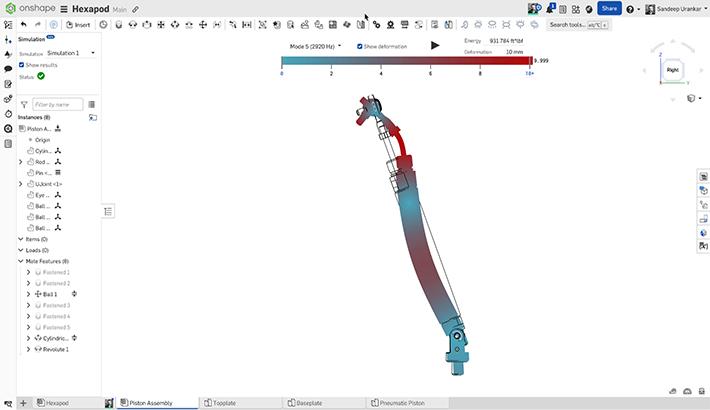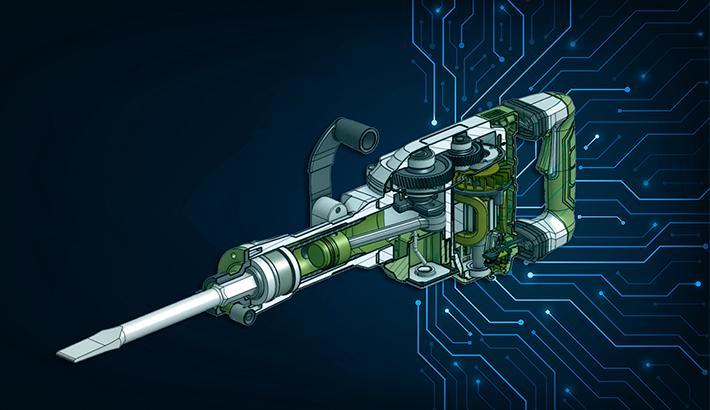
4:21
What do computers, paper bags, windshield wipers, rockets, 3D movies, dishwashers, and robots all have in common? These are just some of the many contributions women engineers have made to our world.
The influence of women engineers is so far-reaching and ingrained in our everyday lives that we may not even think twice about it, but without these contributions, the world would be a very different place. This Women’s History Month, we would like to highlight some of the women engineers making an impact through education.
The Benefits of Investing in Women Engineers
As much as our world benefits from the contributions of women engineers, companies also clearly benefit from supporting women engineers in their workplaces. A 2006 report from McKinsey found that “companies in the top quartile for gender diversity are 15 percent more likely to have financial returns above their respective national industry medians.”
Beyond the financial advantages of a diverse workforce, women have made significant contributions to sustainability, equity, health, and more through engineering.
As Claire Qi, an engineering student at Memorial University of Newfoundland and Labrador, notes, “Women can provide a lot of diverse opinions on engineering projects because we can see different aspects of society that others can’t.”
The Case for Women Mentors in Engineering
Yet women also face well-documented challenges in the engineering workplace, where they made up only 16.7 percent of the engineering workforce in 2023, according to the Society of Women Engineers.

Mentorship programs are key to supporting the next generation of women engineers in the workforce.
In a year-long study conducted by Tara C. Dennehy and Nilanjana Dasgupta of the University of Massachusetts Amherst, 150 female engineering students were placed in three different scenarios: meeting regularly with a male mentor, meeting regularly with a female mentor, and having no mentor.
Those with male mentors and no mentors reported a steep decline to varying degrees of “feelings of belonging in engineering” across their first year of college, as well as a steep decline in self-efficacy. Notably, they reported having high levels of anxiety that overwhelmed their perceived skills, with many choosing to leave the engineering field at the end of the year.
In stark contrast, women mentors not only saw better results amongst the aforementioned categories but in many cases demonstrated opposite trends, most evidently in female students having a consistent or even stronger sense of belonging at the end of their first year.
Of all the categories studied, a sense of belonging was the strongest indicator that female students would continue with their engineering studies.
Women Mentors in Action

For Dr. Alison Olechowski, Assistant Professor of Mechanical Engineering at the University of Toronto, the ability to mentor the next generation of female engineers is one of her position’s most rewarding aspects.
Dr. Olechowski built her career around understanding product design and development and is committed to passing along her understanding to the next generation of engineers.
“What I like most about being an engineering educator is the possibility to help students gain the expertise and confidence to make an impact on the world as designers,” she explained. “We need the next generation of designers to collaborate with diverse and multidisciplinary teams to solve some of the world’s most complex problems. I aim to inspire them to thrive in those settings.”
The Long-Term Effects of Women Engineering Mentors

Kate Gunderson of NASA and the National Test Pilot School is another shining example of the outsized impact that women engineering mentors can have.
Kate shared with her mentor, Kate Leipold, Principal Lecturer in the Department of Mechanical Engineering at Rochester Institute of Technology, "I still think about how overwhelmed I felt in my very first CAD/engineering class at RIT and you really helped put me at ease. People like you are the ones who make a difference for women to succeed in engineering so truly, thank you!”
Programs specifically designed to enable educators to provide support for women in engineering are also gaining more prominence across college campuses.
At the Memorial University of Newfoundland and Labrador, Dr. Janna Rosales is an engineering faculty member and collaborator with an interest in promoting equity, diversity, and inclusion in CAD education.
Dr. Rosales works with engineering students in the second year of undergrad and final year of undergrad across all disciplines of engineering, and her perspective is shared by others in the department, including second-year student Riyana Afroze.

“One of the major reasons to encourage women to take engineering,” Riyana explained, “is because we need facilities, systems, and integrations engineered for women which is oftentimes only possible if these are engineered by women.”
Onshape’s Commitment
PTC and Onshape are committed to providing the tools to women engineers and their mentors that allow engineering talent to develop.
As a cloud-native program free for students and educators, Onshape is breaking the barriers that have historically challenged CAD learners and engineers in ensuring that everyone has access to CAD.
This International Women’s Day, we appreciate all our female educators and mentors who are making a difference in the lives of their students.
As Riyana points out, the most important part of female role models is that “little girls need to see that THEY CAN.”
Get Started with Onshape Education
Onshape for Education brings CAD out of the computer lab and into the modern era.
Latest Content

- Case Study
- Consumer Products
BOA Technology: Redefining Outdoor Fit Equipment with Cloud-Native Onshape
11.03.2025 learn more
- Blog
- Evaluating Onshape
Cloud-Native CAD 2025 Wins: Revenue Growth, Real-Time Collaboration, Unified CAD-CAM
12.17.2025 learn more
- Blog
- Becoming an Expert
- Assemblies
- Simulation
Mastering Kinematics: A Deeper Dive into Onshape Assemblies, Mates, and Simulation
12.11.2025 learn more
- Blog
- Evaluating Onshape
- Learning Center
AI in CAD: How Onshape Makes Intelligence Part of Your Daily Workflow
12.10.2025 learn more



